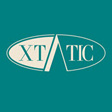Digital therapeutics (DTx) is nothing but a groundbreaking shift in the healthcare landscape. What they do is use advanced digital health technologies to transform patient care and healthcare delivery systems.
This innovative approach is not just about incorporating technology into healthcare; it’s about fundamentally rethinking how we manage and treat chronic diseases and improve global healthcare.
The journey of DTx began with the digitization of health records and has evolved into a comprehensive ecosystem. It now includes everything from mobile health apps to clinical evidence-based software programs designed to treat specific medical conditions. This evolution has been driven by the relentless advancement of technology, particularly in areas such as artificial intelligence and machine learning, which have significantly enhanced the capabilities of digital health solutions.
One of the most noteworthy moments in this journey was recognizing the potential of DTx to place patients at the center of their care. That’s how DTx shifts the focus from traditional healthcare providers to a more patient-centric model. This shift is crucial in managing chronic conditions, where ongoing monitoring and intervention can dramatically improve outcomes.
The Digital Therapeutics Alliance, a consortium of industry leaders, has played a vital role in establishing the credibility and standards for DTx solutions. By advocating for regulatory clarity and promoting the integration of DTx into mainstream healthcare, the alliance has helped pave the way for broader acceptance and adoption of these technologies.
Moreover, the COVID-19 pandemic has served as a catalyst for the rapid expansion of DTx. The necessity for remote care solutions has highlighted the effectiveness of digital medical interventions and further accelerated their adoption.
Key Features and Components of Digital Therapeutic Solutions
DTx solutions utilize a combination of technology, clinically evaluated software, and clinical evidence to deliver therapeutic interventions. These features distinguish DTx from conventional health apps and offer unique benefits in managing and treating various medical conditions.
Here’s a detailed look at the essential features and components of digital therapeutic products:
- Evidence-Based therapeutic interventions: DTx programs are grounded in clinical evidence, which ensures that they meet high efficacy and safety standards. Unlike general wellness apps, DTx provides interventions based on scientific research to manage, treat, or prevent diseases.
- High-quality software programs: These software programs are designed to deliver therapeutic interventions directly to patients. They are developed under strict standards to ensure reliability and effectiveness.
- Medical devices and smart devices integration: DTx often incorporates wearable or handheld devices to monitor health metrics. These devices collect data in real-time inorder to enable personalized feedback and adjustments to treatment plans.
- Artificial intelligence: AI plays a huge role in analyzing data, identifying patterns, and optimizing treatment plans. It enables digital health products to adapt to individual patient needs and enhances their precision.
- Personalized health coaching: Many DTx and wellness applications offer personalized coaching based on the patient’s data. This can include lifestyle and behavioral changes to complement medical treatments.
- User interface and user experience: Advanced technology solutions prioritize engaging and intuitive interfaces. Good UI/UX ensures that patients can easily navigate the app or device, thus promoting sustained engagement and adherence to the therapy.
- Clinical validation: Before digital therapeutic solutions are brought to market, they undergo rigorous clinical trials to validate their efficacy and safety. This process ensures that the interventions can achieve the intended health outcomes.
- Digital technologies: The use of cutting-edge technologies, including cloud computing and mobile connectivity, allows DTx to deliver therapeutic interventions seamlessly and at scale. These technologies enable real-time monitoring and management of health conditions.
- Data security: Given the sensitive nature of health data, robust security protocols are essential core principles. These measures protect patient information from unauthorized access and ensure compliance with health data privacy regulations.
Each of these features contributes to the overall effectiveness and value of digital medicine and its tools. Collectively, they mark a significant evolution in the way healthcare is delivered and experienced by patients.
Clinical efficacy and evidence behind DTx
The validation of DTx solutions through clinical trials and peer-reviewed evidence is crucial for establishing their efficacy and safety.
This section explores the importance of clinical evidence and highlights specific studies and journals that have published supportive results for the digital therapeutics industry.
Clinical trials and systematic reviews
A comprehensive systematic review conducted on clinical trials of DTx reveals their wide application across various conditions. These include mental health disorders, major chronic diseases, and cardiovascular diseases.
The review identified trials that utilized apps, web-based systems, and video games to deliver DTx interventions. They demonstrated significant advancements in treating conditions such as chronic pain, addiction, and insomnia.
This study emphasizes the rigor applied in evaluating DTx and points out their potential to provide evidence-based therapeutic interventions.
Psychiatric and neurological indications
Clinical trials specifically focusing on psychiatric and neurological conditions have shown that digital therapeutics hold promise for treating a broad spectrum of diseases.
From major depressive disorder to neurodegenerative diseases like Parkinson’s and chronic conditions such as heart failure, DTx interventions are being rigorously tested. Trials have spanned across the globe, with a significant number conducted in the United States, which has increased the international interest and investment in DTx research.

Get help overcoming the challenges and maximizing the opportunities that DTx solutions present
Book a call with one of our experts today.

Impact and outcomes
The outcomes of these clinical trials highlight the potential of DTx for achieving clinically meaningful outcomes.
For instance, interventions targeting mental health, addiction, and chronic pain management have been among the most studied. This date reflects the pressing need for innovative treatment modalities in these areas.
Moreover, the diversity in DTx applications illustrates the field’s dynamic nature and its potential to cater to varied patient needs and preferences.
Commercialization and regulatory approval
The pathway to DTx commercialization involves a lot of testing and regulatory approval, with many products focusing initially on chronic diseases and expanding to more diverse indications.
Some notable examples include reSET for substance abuse disorders and EndeavorRx for pediatric ADHD. Both of these solutions have demonstrated efficacy through clinical trials and received FDA clearance. This process ensures that DTx products meet stringent safety standards and provides a solid foundation for their integration into mainstream healthcare.
As the DTx field continues to grow, ongoing research and regulatory requirements will likely increase to ensure. The purpose is simple – ensuring that these innovative solutions can safely address the complex needs of patients and lead to better clinical outcomes.
Regulatory landscape and guidelines in digital therapeutics
The regulatory landscape for digital therapeutics is defined by a set list of guidelines that is determined from bodies like the Food and Drug Administration (FDA) in the United States.
It is important for healthcare companies to understand the current regulatory status, including the approval process and the significance of regulatory guidelines for DTx. This way, they can better address the needs of all the stakeholders in the healthcare and technology sectors.
Regulatory bodies and approval process
The FDA plays a major role in regulating digital therapeutic solutions, as it ensures that each solution meets standards for safety, efficacy, and quality.
The agency’s Digital Health Center of Excellence is a testament to its commitment to advancing healthcare through digital innovation while maintaining regulatory oversight. The process of approval for DTx involves rigorous clinical evaluation and adherence to specific regulatory standards.
The FDA has outlined a series of guidance documents that provide clarity on digital health content. It covers aspects from software in medical devices to cybersecurity and data acquisition for clinical investigations.
These guidelines are designed to help developers and providers understand the complexities of digital health regulation. Ultimately, they can serve as a roadmap for DTx developers as they are transforming global healthcare.
Innovation and Support for DTx Development
The FDA’s engagement with stakeholders through the Digital Health Technologies (DHTs) for Drug Development initiative demonstrates its support for incorporating DHTs, including DTx, in clinical drug development.
The FDA’s efforts extend to aligning regulatory approaches internationally, which aims to harmonize regulatory expectations and industry standards. This global perspective underscores the importance of consistent application of digital health technology policies and oversight approaches.
Noteworthy trends in digital therapeutics
The DTx industry is witnessing rapid evolution with several emerging trends shaping the future of healthcare delivery and patient engagement.
Here are some notable trends:
- Integration of AI: AI is becoming increasingly prevalent in the DTx sector as it enhances the personalization and effectiveness of digital health solutions. Through AI, DTx applications can analyze vast amounts of health data in real-time and offer tailored interventions and predictive insights for patient care.
- Partnerships with pharmaceutical companies: Collaborations between DTx companies and pharmaceutical industry giants are on the rise. The ultimate aim is to integrate digital health solutions with traditional medication therapies. These partnerships are focused on developing comprehensive care models that enhance drug efficacy, patient adherence, and overall health outcomes.
- Focus on chronic disease management: Chronic diseases such as diabetes, cardiovascular disease, and respiratory disease are primary targets for DTx interventions. Digital solutions prove to be effective in managing these conditions by continuous monitoring, lifestyle modifications, and personalized treatment plans. This has significantly reduced hospital readmission rates and improving patient outcomes.
- Mobile health (mHealth) expansion: The extended use of smartphones and wearable devices has led to the exponential growth of mHealth applications. These tools are becoming integral to DTx solutions because they enable remote patient monitoring, health data collection, and real-time feedback.
- Enhanced patient engagement: DTx platforms are increasingly focusing on engaging patients in their care processes. Through interactive interfaces, gamification, and personalized feedback, these solutions encourage patients to take an active role in managing their health.
- Regulatory evolution and product commercialization: The regulatory landscape for DTx is evolving to keep pace with technological advancements. Regulatory bodies like the FDA are establishing frameworks and guidelines to ensure the safety and efficacy of DTx products in the healthcare environment.
Meanwhile, the commercialization of DTx solutions is expanding, with a growing number of products receiving regulatory approval for use in managing a wide range of conditions.
The role of software in treatment
DTx solutions also change the way we approach the treatment, management, and prevention of diseases. This includes mental health disorders like Post-Traumatic Stress Disorder (PTSD) and Substance Abuse Disorders (SUD).
Through the use of high-quality software programs, digital therapeutics offer evidence-based therapeutic interventions directly to patients to provide personalized care.
The key aspects of DTx software in treatment are as follows:
- Evidence-based interventions: DTx is grounded in clinical evidence, which proves its effectiveness in treating specific medical conditions. They undergo a thorough FDA approval process, similar to pharmacological agents and medical devices. Or else said – they need to demonstrate safety and efficacy through randomized controlled trials.
- Software as a medical device (SaMD) and mobile medical applications (MMAs): The FDA categorizes digital therapeutics under SaMD or MMAs, depending on their function and application. This classification highlights the medical purpose of DTx software, distinguishing it from general wellness apps.
- Personalized treatment: DTx platforms are designed to adapt to the individual needs of patients and allow tailored interventions. This is particularly crucial for conditions like PTSD and SUD, where personalized care plans can significantly impact recovery and management.
Last but not least, connected devices and mobile health applications help DTx enable real-time data collection and monitoring of patient health. This ongoing engagement allows for immediate adjustments to treatment plans based on patient progress and feedback.
DTx software development for specific conditions
As of today, healthcare software development companies can address a particular medical disorder with a personalized solution – all thanks to the rise of digital therapeutics.
For example, the integration of Cognitive Behavioral Therapy (CBT) and other evidence-based behavioral treatments into DTx software provides a new avenue for managing these complex conditions.
Treatments like Prolonged Exposure (PE), Eye Movement Desensitization and Reprocessing (EMDR), and Imagery Rescripting (ImRs) are being explored within DTx platforms to offer comprehensive care for patients with co-occurring PTSD and SUD.
Beyond behavioral healthcare, digital therapeutics can also help manage different neurological diseases and monitor patient’s health through interactive content and personalized feedback.
Challenges and opportunities in DTx Solutions
Some of the greatest current challenges in digital healthcare and therapeutics are the following:
- Regulatory ambiguity: DTx regulations are complex due to rapid software changes. The Food and Drug Administration’s Software Precertification Pilot Program aims to establish a Total Product Lifecycle regulatory framework, but the effectiveness of this model in ensuring safe and reliable DTx is still under evaluation.
- Evidence generation: Establishing clinical evidence for DTx efficacy remains a significant hurdle. Unlike traditional therapeutics, DTx can be updated quickly which worsens the predictability of outcomes and requires new regulatory frameworks to evaluate these evolving treatments.
- Data security: Protecting patient privacy is not to be neglected, especially for DTx that frequently update software or connect to other devices. The FDA mandates that medical device companies identify and address cybersecurity risks, but evolving best practices for data management and privacy present ongoing challenges.
Finally, developing reimbursement policies for DTx is challenging as they are evaluated for treatment efficacy and cost-effectiveness. Limited guidance from CMS and a lack of Medicare benefit categories for DTx complicate their integration into healthcare systems.
Meanwhile, the most promising opportunities in the sector are as follows:
- Bridging Care Gaps: DTx have the potential to address care gaps created by provider shortages and geographic barriers. This is possible thanks to continuous and personalized care through consumer devices like smartphones and tablets.
- Expanding Access to Care: The exponential growth in funding and the adoption of DTx, especially during the COVID-19 pandemic, highlights the potential of digital solutions to provide accessible and efficient healthcare at scale.
- Integrating with Traditional Healthcare: Opportunities for DTx to complement traditional healthcare practices range from chronic disease management to digital diagnostics and mental health services. As DTx solutions become more accepted, they can serve as valid treatment options alongside conventional therapies.
The advancement in technology, including AI and machine learning, offers digital therapeutics the opportunity to innovate treatment approaches, personalize patient care, and improve health outcomes for a wide range of conditions.

Identify and take advantage of –emerging trends and the future directions of DTx solutions
Learn how from our consultants. We work with clients worldwide.
Conclusion
Integrating DTx solutions into existing healthcare systems is indeed a challenge. It is all about the readiness of healthcare providers, the adaptability of healthcare delivery systems, and the acceptance by patients and payers.
Successful integration requires a concerted effort to align DTx solutions with clinical workflows and ensure that they complement traditional healthcare practices to optimize patient care.
For providers, the challenge lies in incorporating DTx into their daily routines without disrupting established processes. This process, in turn, requires training and support to understand and utilize these technologies effectively.
Patients stand to benefit significantly from DTx integration, which promises more personalized and accessible care, especially for managing chronic diseases.
However, patient engagement and adherence are critical to realizing these benefits. DTx platforms must be user-friendly and engaging to encourage regular use and adherence to treatment plans.
Tools like personalized health coaching, gamification, and real-time feedback systems have shown effectiveness in boosting patient engagement and adherence by making healthcare interactive and responsive to individual patient needs.


















